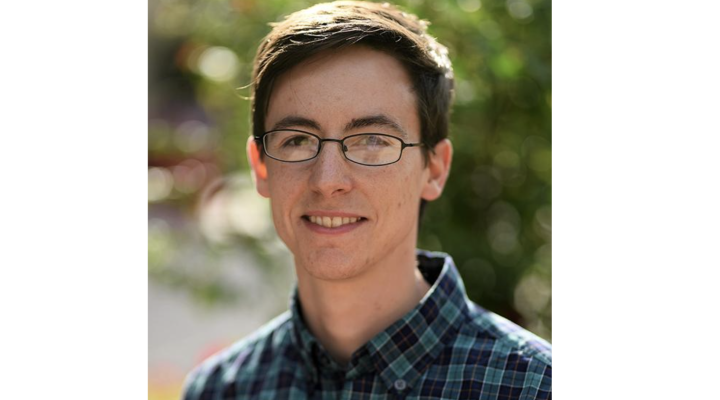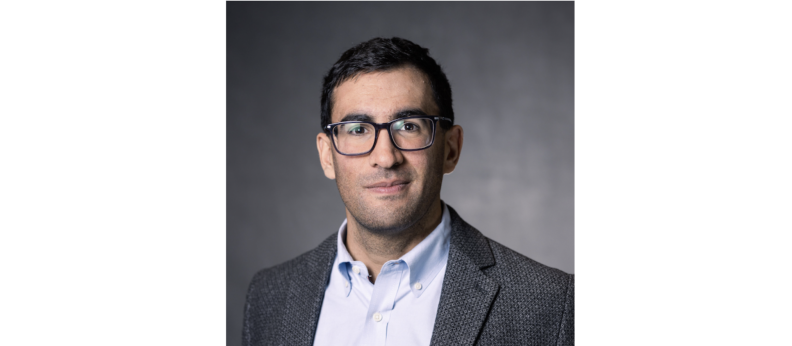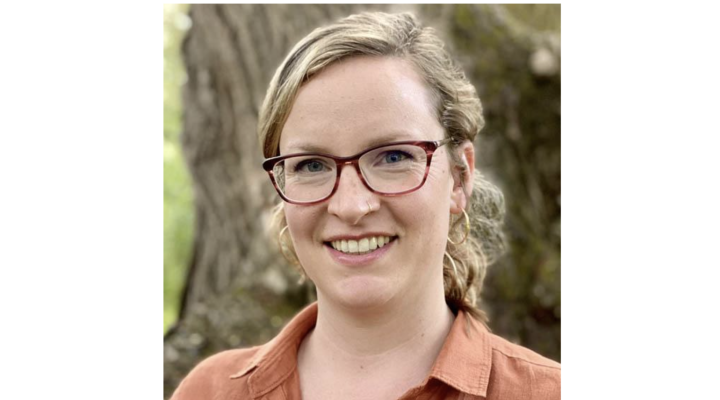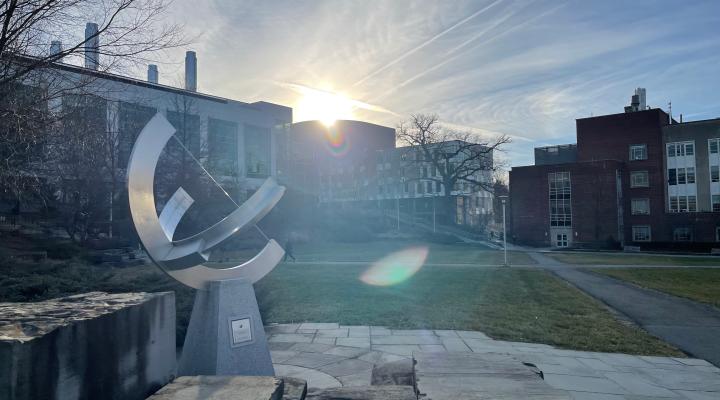When Daniele Visioni was six months away from finishing his physics Ph.D. studies at Italy’s University of L’Aquila he took a long bus ride to Zurich, Switzerland to give a talk at an academic conference. He was feeling a bit sleep-deprived and started his talk with a quick advertisement for himself, mentioning that he was about to graduate and needed a job.
Later that day at dinner, Cornell Engineering faculty member Doug McMartin was seated next to Visioni and, in the course of their conversation, McMartin offered Visioni a postdoctoral position at Cornell. Visioni, who had never heard of Cornell, said he wasn’t really even sure the offer was a serious one. It turned out that the offer was indeed serious and two months later Visioni signed all the papers and committed to the position. He finished his Ph.D. studies on October 30th of 2018 and was at Cornell to start his postdoc on November 1st.
Visioni grew up in Italy and was the first in his family to go to college. His doorway into science was the science fiction of Frank Herbert. “Dune fascinated me the most,” Visioni said. “I am sure I didn’t really even understand it the first time I read it. But the idea of an entire planet as a living ecosystem made a deep impression and has stuck with me ever since.”
During his undergraduate physics studies at L’Aquila, Visioni took a fluid dynamics class that included several lectures about climate. These lectures changed the course of his life. Until then, Visioni assumed he would take his physics degree and then work at the Laboratori Nazionali del Gran Sasso, which is the world’s largest underground research facility. The labs there are five miles from L’Aquila and carry out cutting edge particle physics research.
Climate modeling gave Visioni a new and fascinating way to apply his knowledge of physics and his deep interest in coding and modeling complex systems. During his doctoral studies Visioni spent time at NASA’s Goddard Space Flight Center in Maryland and at NOAA’s National Center for Atmospheric Research (NCAR) in Colorado. Then came that fateful dinner in Zurich and Visioni’s move to Ithaca.
In his postdoc and research associate work with McMartin, Visioni focused on studying the interactions between stratospheric aerosols, chemistry and dynamics in the stratosphere and surface climate, including biosphere interactions. Understanding these interactions is an essential early step in assessing the feasibility and advisability of using climate intervention tools called Sunlight Reflection Methods (SRM) to potentially mitigate the effects of climate change.
In January of 2023 Visioni started a short-term position back at NCAR with their Atmospheric Chemistry, Observation and Modeling Lab. In August he joined the faculty of Cornell’s Department of Earth and Atmospheric Sciences as an assistant professor. “The department has been so welcoming,” Visioni said. “People here do such great work and I have the opportunity to continue my work in a beautiful place that I love with wonderful colleagues—why would I leave Ithaca?”
“I am a climate modeler at heart and my research here is rooted in that work,” Visioni said. “And because climate models are so complex and touch on so many disciplines there is room in my research group for people with all kinds of interests.” This is clear when you read the “Research Interests” section of Visioni’s faculty website:
“His research interest in SRM has led him to be involved in multiple research endeavors that connect climate modeling with societal, political and ethical issues around this topic, in particular related to the perceived legitimacy of climate scenarios as used to assess SRM, reliability of climate models and how to improve diversity in the field. He also has strong ties with research groups in developing countries through the DEGREES initiative for which he is a volunteer scientific advisor, with the aim of strengthening the voice of scientists in the Global South in discussions around the topic of Climate Intervention.”
Other than a high school physics teacher named Adele Paravano who gave him support and advice throughout the years, Visioni has been making his way through academia without a roadmap and without much mentoring. Visioni understands the value of mentoring exactly because he did not have any real mentors as a student. “Now that I am in a position to mentor others—especially first-generation college students—I put a lot of time and effort into it.”
When he is not creating and sharpening climate models or mentoring students, Visioni likes to run, to visit local breweries and taste their products, and to participate in the sport of fencing along with his husband.





